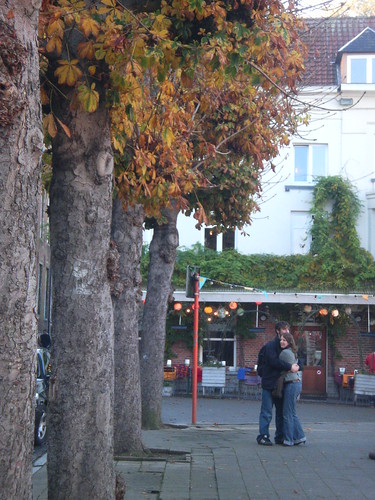One point brought home from another of the speakers at the CWF is the fact that people of our grandparents’ generation (65+ years old) have already gone through very big changes in the world, something that I don’t think we recognise often enough. If your grandparents are old enough, they saw the introduction of radio, TV, trans-atlantic travel, the Second World War, decolonisation, the European Union, the nuclear bomb, the massification of the automobile… without even talking about microwave ovens, immigrants from different parts of the world, computers and the internet… If you take into account that the rate of change is much faster now than when they were your or my age, you can only come to the conclusion that the world will be even more drastically different when we reach their age.
If there’s people over 70 wathching pictures in Flickr and doing their banking over the internet, that’s the kind of person I want to be when I’m their age, and I understand why not everybody can be like that (there’s also cultural issues of, say, uncertainty avoidance involved which they are not responsible for, among many other factors). If at that age they still take the world at face value and enjoy what they do, that’s the person I want to be. So if you agree with me spare a thought for your parents and grandparents and give them your love and respect. Probably a hug would be nice too.
